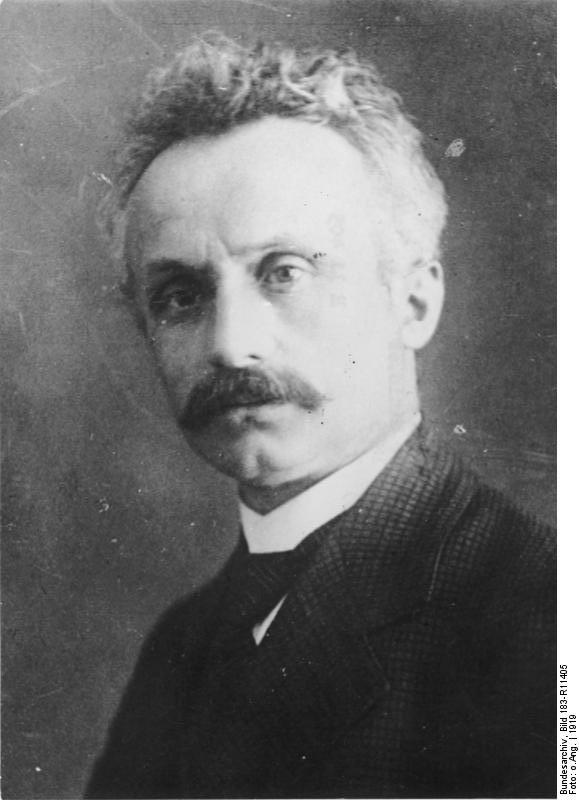Carl Severing
 Carl Wilhelm Severing (1 June 1875 – 23 July 1952) was a German union organizer and Social Democratic politician during the German Empire, Weimar Republic and the early post-World War II years in West Germany. He served as a Reichstag member and as interior minister in both Prussia and at the Reich level where he fought against the rise of extremism on both the left and the right. He remained in Germany during the Third Reich but had only minimal influence on reshaping the Social Democratic Party after World War II.
Carl Wilhelm Severing (1 June 1875 – 23 July 1952) was a German union organizer and Social Democratic politician during the German Empire, Weimar Republic and the early post-World War II years in West Germany. He served as a Reichstag member and as interior minister in both Prussia and at the Reich level where he fought against the rise of extremism on both the left and the right. He remained in Germany during the Third Reich but had only minimal influence on reshaping the Social Democratic Party after World War II.Severing came from a poor working class family in Westphalia. After completing an apprenticeship as a locksmith he became a member of the German Metalworkers' Union and rose rapidly in both the union and the Social Democratic Party (SPD) in Bielefeld. He won a seat in the Imperial Reichstag in 1907 but lost his bid for re-election in 1912. He remained active in the SPD, including as a writer for its Bielefeld newspaper.
Severing supported Germany during World War I in the belief that it was fighting a defensive war. After the Empire's defeat, he became a member of the First Reich Congress of Workers' and Soldiers' Councils in Berlin, the Weimar National Assembly and then the Weimar Reichstag, where he retained his seat until the National Socialists rose to power in 1933.
During the period of serious labor unrest that broke out in the industrial areas of the Ruhr valley and Upper Silesia in early 1919, Severing was appointed state commissioner with the task of defusing the situation. He won praise for doing so with a minimum use of force. Following the 1920 Kapp Putsch, Severing was named Prussian interior minister. During his three terms in office, he worked to democratize both the Prussian administration and its police force, primarily by removing officials who were not supporters of a republican form of government. He attempted to build a strong police force in the conviction that its use would lead to less violence and fewer deaths than would the Reichswehr when confronting internal unrest such as the 1921 central German uprising.
Severing was Reich interior minister from June 1928 to March 1930. He was faced with the increasing strength of extremist parties and with violence from both the left, primarily the Communist Party of Germany (KPD), and the right, including various Freikorps units and the Nazi Party. He had the Nazi SA banned in 1932 but in general resisted calls to ban extremist groups except when they posed a threat to the Republic. In the face of opposition from the SPD that he was seldom able to overcome, Severing also favored co-operation between the SPD and the extremist parties in the Reichstag, arguing that it would be worse to withdraw and leave them in control.
After Reich Chancellor Franz von Papen ousted the Prussian government in the 1932 Prussian coup d'état, Severing and the remainder of the SPD offered no resistance to a move that helped pave the way for Adolf Hitler to become German chancellor in 1933. Severing remained in Germany during the Third Reich where he faced only minor harassment. He had contacts with some of the parties involved in the 1944 assassination plot against Hitler but played no active role.
In the aftermath of World War II, Severing was contacted by and worked with the Allied occupation authorities and again became active in the SPD, but he never played a leading role because the party wanted a wholly new start. He was, however, a member of the parliament of North Rhine-Westphalia until his death in 1952. Provided by Wikipedia
1
2
by Biedermann, Adolf 1881-1933
Published 1928
Other Authors: ';
“...Severing, Carl 1875-1952...”Published 1928
Book
